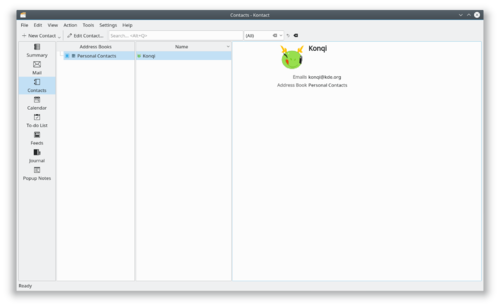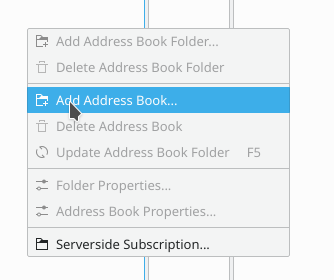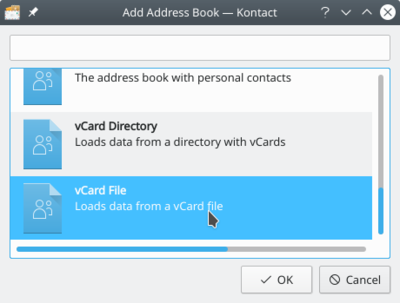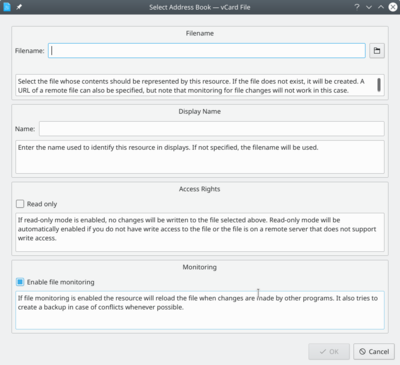KAddressBook: Difference between revisions
start updating kaddressbook page |
m add a tutorial |
||
| Line 31: | Line 31: | ||
<!--T:20--> | <!--T:20--> | ||
The page [[Special:myLanguage/Akonadi_and_AddressBook|Akonadi and AddressBook]] helps you understand the structure of KAddressBook, so that you can be sure that you have backed up all that you need. | The page [[Special:myLanguage/Akonadi_and_AddressBook|Akonadi and AddressBook]] helps you understand the structure of KAddressBook, so that you can be sure that you have backed up all that you need. | ||
== Tutorials == | |||
* [https://docs.nextcloud.com/server/13/user_manual/pim/sync_kde.html Synchronizing NextCloud with KDE PIM] | |||
==Troubleshooting== <!--T:21--> | ==Troubleshooting== <!--T:21--> | ||
Revision as of 21:58, 16 January 2019

Introduction
KAddressBook stores all the personal details of your family, friends and other contacts. It supports large variety of services, including NextCloud, Kolab, Google Contacts, Microsoft Exchange (EWS) or any standard CalDAV server.
How to get started
Create a new address book
First create a address book, by right clicking on the section, to open a context menu, and then click on .

You will now see a list of differents supported services, NextCloud, Google Contacts, ... Choose the services you want to use.

You then need to configure the service, by for example giving your credentials, or if you prefer using a local file giving the path to the file (can be new or already existing).

Backing up your Data
The page Akonadi and AddressBook helps you understand the structure of KAddressBook, so that you can be sure that you have backed up all that you need.
Tutorials
Troubleshooting
A number of common 'teething problems' have been reported in versions shipped with KDE SC 4.4. Many of them disappeared with the advent of 4.4.1, but if you still get error messages, Akonadi 4.4 Troubleshooting has solutions to many problems.

